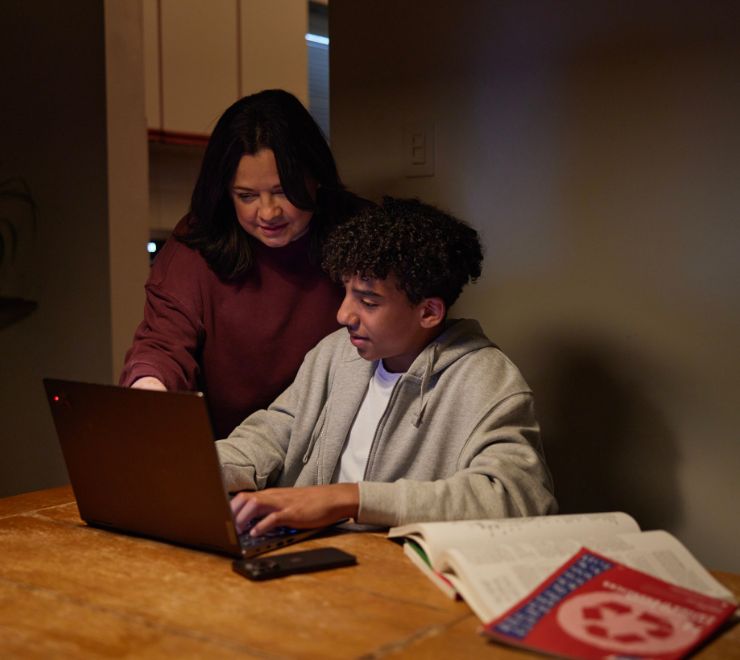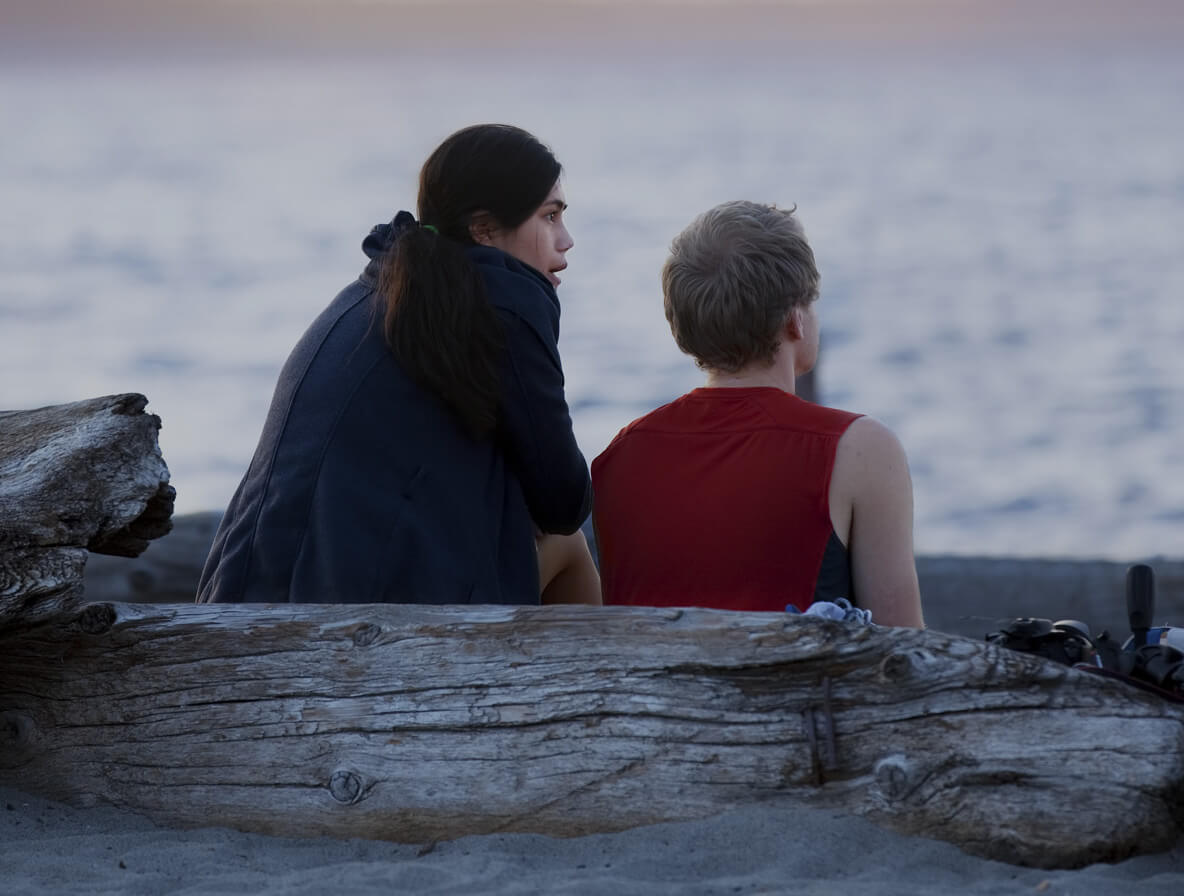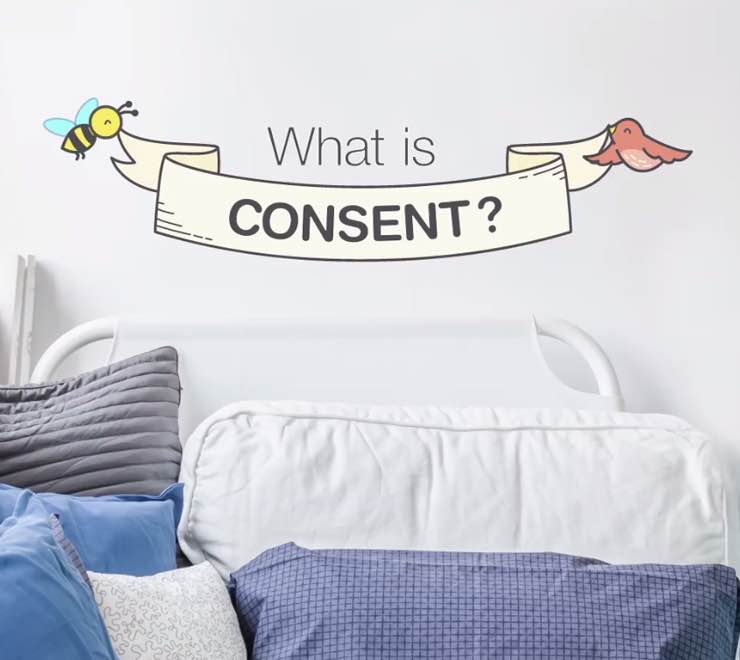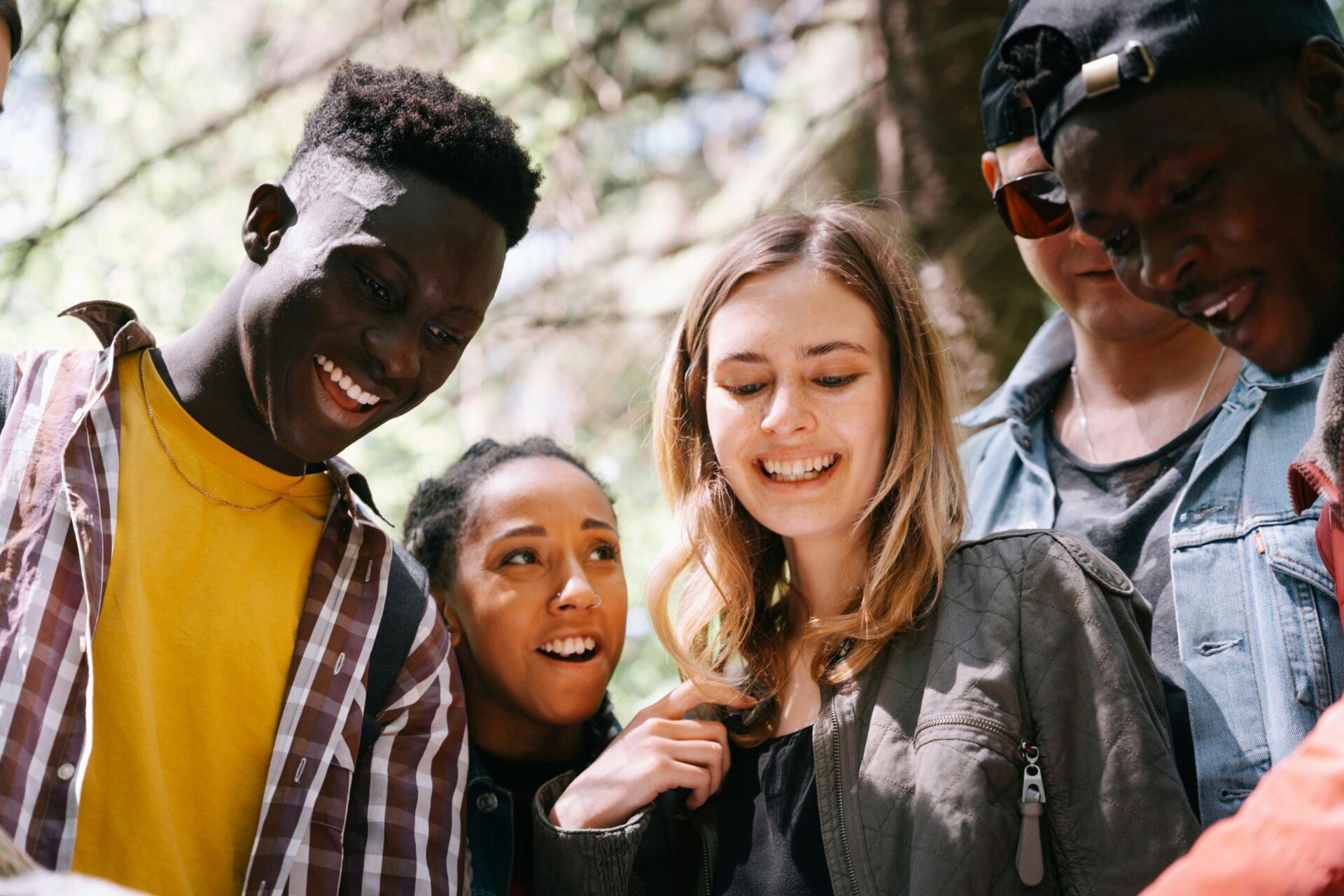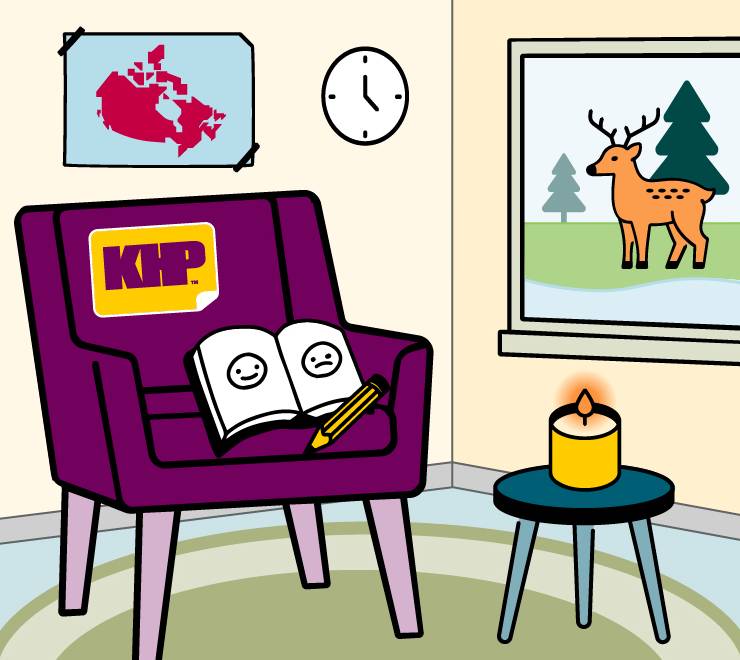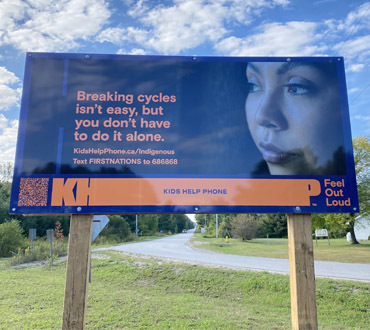When people are sexual together, they have to agree to what’s happening. This is called giving consent.
Consent is defined as a voluntary agreement to do something. When it comes to sex (e.g. mutual masturbation, oral sex, vaginal sex, anal sex, sexting, other intimate contact, etc.), it’s important for everyone involved to give/receive enthusiastic consent. Enthusiastic consent means everyone is into what’s happening, and shows they’re ready through words and actions. Establishing enthusiastic consent before and throughout sexual activity means everyone is on the same page and having fun together. Remember, if consent is not given by everyone involved, it’s sexual violence.
How do I know if it’s consensual sex?
During sexual activity, everyone present must agree willingly to everything that’s happening as you go. Here’s what enthusiastic consent looks like:
- each person is of age, awake and aware and feels free to make their own choices
- each person wants to do each activity and is actively participating
- each person asks for consent to do each activity
- each person gives consent through words and actions
It’s important to remember things like silence or a nod are not enough to establish consent.
It is not consensual if a person:
- says out loud or indicates with their body language, “no”
- changes their mind from a “yes” to a “no” with their words/actions
- says “yes” to one thing but “no” to another
- is impaired by alcohol or drugs
- is unconscious or sleeping
- is intimidated, pressured, threatened or coerced
- is under the age of 16 or does not fit the “close in age” rule (see below for more information)
- is in a position of trust or authority (e.g. a teacher, coach, employer, etc.) with a young person under the age of 18
- seems unsure (e.g. looks nervous, pulls away, etc.)
Keep in mind that:
- saying “yes” to one thing doesn’t imply “yes” to something else
- if you move on to something else, each person needs to consent again
- pressuring someone to change their mind is not consent
And importantly:
- it’s not consensual if someone can’t give consent (e.g. because of substance use, unconsciousness, age, etc.), even if they say “yes”
What’s the age of consent?
In Canada, the age of consent to sexual activity is 16. However, there are some exceptions to this law. The “close in age” rule means that:
- 12- and 13-year-olds can be sexual with people who are no more than two years older than them
- 14- and 15-year-olds can be sexual with people who are no more than five years older than them
Why is consent so important?
Without consent, sexual activity is sexual violence. Sexual violence can be:
- Sexual assault: sexual assault is any unwanted sexual act done by one person to another, including unwanted contact of a sexual nature such as kissing, touching, oral sex, vaginal sex, anal sex, etc.
- Sexual harassment: sexual harassment is any unwanted verbal or physical conduct of a sexual nature from one person to another.
How do I know if it’s sexual violence?
For example, it’s sexual violence if:
- you don’t ask and obtain clear permission before you attempt to have sex
- you take a picture of a classmate who passed out with their shirt lifted up
- your coach insists you give them a massage after the other players leave the locker room
- your partner tells you to touch them or they’ll break up with you
No one has the right to touch you without your permission. If you’ve been impacted by sexual violence, there are people and places available to support you. You can search for services near you using Resources Around Me or speak with the police/emergency services, a parent/caregiver, teacher, school nurse or any other safe adult.
What can I do to prevent sexual violence?
If you feel comfortable, you can take action to help make your community safer. Here are a few things you can do:
- learn about, practise and promote consent
- respect other people’s sexual orientation and gender identity
- join or start a violence prevention program at your school/community organization to help raise awareness
Practising consent is important for safe, healthy and fun sexual experiences. You can always talk to your partner(s) about consent and your sexual health to set boundaries, get the facts and protect yourselves.

